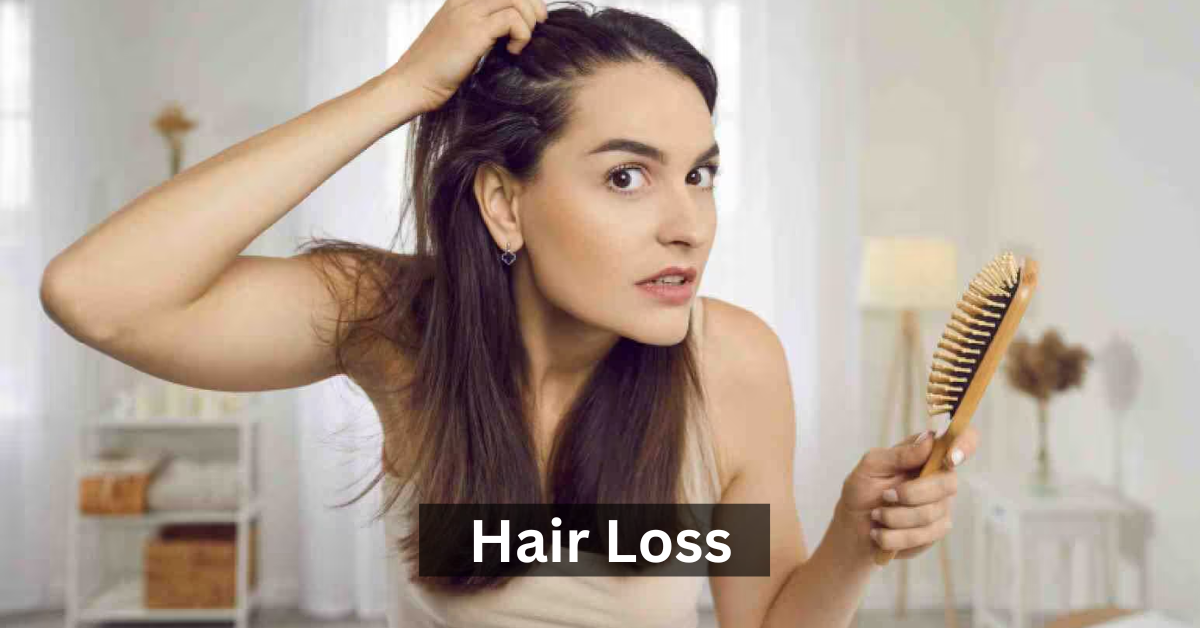Hair loss may result from genetics, hormonal shifts, medical issues, stress, poor nutrition, or environmental factors like pollution and over-styling. Whether you’re experiencing hair thinning, a receding hairline, or noticeable baldness, it’s important to understand the causes and solutions available to maintain your hair’s health and appearance. For many, hair loss can be a source of frustration and self-esteem concerns. However, the good news is that there are many ways to address hair shedding and restore hair to its natural fullness.
In this comprehensive guide, we’ll explore the reasons behind hair loss, share effective hair loss treatments, and provide hair regrowth tips to help you regain your confidence.
Effective Hair Loss Treatment for Men
Hair loss can be a particularly distressing issue for men, especially when dealing with male pattern baldness. Fortunately, there are numerous hair loss treatment for men that can help slow the process or even reverse some of the damage. Over-the-counter solutions like Minoxidil and prescription medications such as Finasteride are popular treatments that stimulate hair growth and reduce hair thinning. Additionally, Formula Wellness hair transplant Dallas offers a more permanent solution for men who experience significant hair loss. With advanced techniques like FUE (Follicular Unit Extraction) and FUT (Follicular Unit Transplantation), these procedures help restore a fuller, natural hairline by transplanting healthy follicles to thinning areas of the scalp.
What is Hair Loss?
Hair loss refers to the shedding of hair from the scalp or other parts of the body, which can lead to thinning hair or bald patches. While it is natural for hair to shed every day, significant hair loss, or hair fall, can occur for a variety of reasons. Factors like hormonal imbalance, genetic predisposition, and environmental stress can contribute to hair thinning.
Whether it’s female hair loss, male pattern baldness, or alopecia, understanding the cause is essential for choosing the right hair restoration method.
How Common is Hair Loss?
Hair loss is extremely common and can affect individuals of all ages and genders. Studies show that approximately 50% of men will experience some degree of male pattern baldness by the age of 50, while women, especially post-menopausal, may face female hair loss due to hormonal shifts.
Although hair loss is common, the severity and timing can vary widely. It’s important to identify early signs of hair loss, such as increased hair shedding or a receding hairline, to prevent further progression and explore treatment options.
Why Does Hair Loss Matter?
The emotional and psychological impact of hair loss is significant. For many, hair is a symbol of youth, beauty, and vitality. When hair thinning or baldness occurs, it can lead to reduced self-confidence and social anxiety. That’s why finding a solution to hair loss is more than just about aesthetics – it’s about feeling comfortable and confident in your own skin.
Hair Loss Treatment for Women
While hair loss is often thought of as a predominantly male issue, it also affects millions of women worldwide. For women, hair loss treatment for women may involve a combination of topical treatments, medications, and lifestyle changes. Over-the-counter options like Minoxidil have been approved for use in women and can help regrow hair and prevent further shedding. Hormonal changes during pregnancy, menopause, or due to thyroid issues can contribute to thinning hair in women, and these conditions require specialized treatment plans. Consulting with a healthcare provider is crucial to determine the best approach, whether it’s medication, topical treatments, or natural remedies like coconut oil or aloe vera for scalp health.
Common Causes of Hair Loss
Understanding the various causes of hair loss can help pinpoint the most effective solution. Here are some of the most common factors:
Genetic Factors: Male and Female Pattern Baldness
One of the most well-known causes of hair loss is genetics. Male pattern baldness, also known as androgenetic alopecia, is the most common form of hair loss in men, typically starting with a receding hairline and progressing to baldness. Women can also experience this condition, leading to thinning hair all over the scalp.
The hormone DHT (dihydrotestosterone), a byproduct of testosterone, plays a significant role in hair follicle shrinkage and hair thinning.
Hormonal Changes: The Role of DHT, Pregnancy, and Menopause
Hormonal imbalances are another major cause of hair loss. During pregnancy, women may experience temporary hair loss due to fluctuating hormones, while post-menopausal women often face thinning hair due to reduced estrogen levels. In both men and women, DHT plays a role in hair loss, particularly in the context of male pattern baldness.
Types of Hair Loss
There are several types of hair loss, each with its own set of characteristics and treatment approaches. These include:
Androgenetic Alopecia (Pattern Baldness)
This is the most common type of hair loss, affecting both men and women. It typically follows a predictable pattern, such as a receding hairline in men or thinning at the crown in women.
Telogen Effluvium (Temporary Hair Shedding)
This type of hair loss is usually temporary and occurs when a significant stressor causes a large number of hair follicles to enter the shedding phase of the hair cycle. It can result from factors like illness, stress, or hormonal changes.
Alopecia Areata (Autoimmune Hair Loss)
Alopecia areata occurs when the immune system mistakenly attacks the hair follicles, leading to round patches of hair loss on the scalp. It can also affect other parts of the body.
Traction Alopecia (Hair Loss Due to Hairstyles)
Traction alopecia is caused by tight hairstyles like ponytails or braids that pull on the hair and damage the hair follicles, leading to hair shedding and thinning.
How to Prevent Hair Loss
Prevention is always better than cure, and there are several strategies to minimize the risk of hair loss and promote hair regrowth.
Diet and Nutrition: Key Vitamins and Minerals for Hair Health
A protein-rich diet combined with vitamins for hair growth like biotin, zinc, and collagen can support hair health. Nutrients like iron, omega-3 fatty acids, and vitamin D are also essential for strong and healthy hair.
Managing Stress: How Stress Affects Hair and Solutions
Chronic stress can lead to stress-induced hair loss, especially in the form of telogen effluvium. Incorporating relaxation techniques such as yoga and meditation can reduce stress levels and promote a healthy scalp, ultimately helping to prevent hair shedding.
Proper Hair Care Routine: Gentle Shampooing, Conditioning, and Scalp Care
Using gentle anti-hair loss shampoos like Revita or Keranique and conditioners that promote scalp health can help protect your hair from damage. Avoid harsh chemicals, and choose products that support natural hair growth.
Exploring Advanced Hair Loss Solutions with Formula Wellness Hair Transplant Dallas
For individuals seeking a more permanent solution to their hair loss, Formula Wellness hair transplant Dallas offers cutting-edge procedures that can restore natural hair growth. Whether you are dealing with male or female pattern baldness, hair transplant surgery is often considered the most effective long-term treatment. With FUE (Follicular Unit Extraction), individual hair follicles are harvested from areas of the scalp with thicker hair and carefully transplanted to areas of thinning or baldness. Alternatively, FUT (Follicular Unit Transplantation) removes a strip of scalp from a donor area and transplants the hair follicles to balding areas. These advanced techniques leave minimal scarring and result in natural-looking hair growth, providing patients with a renewed sense of confidence and satisfaction with their appearance.
Natural Remedies for Hair Loss
Several natural remedies can be effective in promoting hair regrowth and improving scalp health.
Coconut Oil: Benefits and How to Use It for Hair Growth
Coconut oil is known for its nourishing properties. Regular scalp massages with coconut oil can improve blood circulation, reduce dandruff, and encourage hair regrowth.
Onion Juice: A Natural Treatment for Hair Regrowth
Onion juice is rich in sulfur, a mineral that promotes collagen production and encourages hair regrowth. Applying onion juice to your scalp can help improve the health of hair follicles.
Aloe Vera: Soothing the Scalp and Reducing Hair Loss
Aloe vera is a gentle and soothing remedy for the scalp. It can help reduce dandruff and hair thinning while promoting healthy hair growth.
Medical Treatments for Hair Loss
When natural remedies don’t provide the desired results, medical treatments are an effective option.
Minoxidil (Rogaine): How It Works and Effectiveness
Minoxidil, commonly known as Rogaine, is an over-the-counter solution that can stimulate hair regrowth and slow down hair shedding. It works by increasing blood flow to the hair follicles and stimulating growth.
Finasteride (Propecia): The Science Behind DHT Blockers
Finasteride, also known as Propecia, is a prescription medication that blocks the formation of DHT, the hormone responsible for male pattern baldness. By inhibiting DHT, finasteride can prevent further hair loss and promote hair regrowth in some individuals.
Hair Transplants: FUE vs. FUT – Which Is Right for You?
Hair transplant surgery involves moving healthy hair follicles to areas of the scalp with thinning or no hair. FUE (Follicular Unit Extraction) is a minimally invasive technique that harvests individual hair follicles, while FUT (Follicular Unit Transplantation) involves removing a strip of scalp and transplanting the hair.
Lifestyle Changes to Improve Hair Health
Healthy lifestyle choices can have a profound impact on hair health.
Exercise and Blood Circulation: Encouraging Hair Growth Through Physical Activity
Regular physical activity boosts blood circulation, including to the scalp. This increased circulation encourages healthy hair growth and improves overall scalp health.
Hydration: How Water and Moisture Impact Hair Health
Staying hydrated is essential for maintaining moisture in both the scalp and hair. Adequate hydration supports the health of hair follicles, preventing hair from becoming dry and brittle.
Best Hair Care Practices for Healthy Hair
Proper hair care is crucial for preventing and treating hair loss.
Choosing the Right Shampoo and Conditioner: What to Look for in Hair Products
When choosing a shampoo and conditioner, look for products designed for thinning hair and hair regrowth. Brands like Nioxin offer systems that target scalp health and provide nourishing ingredients for fuller hair.
Regular Hair Trims: Why You Should Trim Your Hair Every 6-8 Weeks
Regular trims help maintain hair health by removing split ends and preventing further breakage. Keeping your hair trimmed also makes it look fuller and healthier.
Hair loss is a common issue, but with the right information and tools, it’s manageable. Whether you’re dealing with genetic hair loss, stress-induced shedding, or hormonal changes, the solutions outlined in this guide can help you take proactive steps toward maintaining a healthy, full head of hair.
When to Seek Professional Help
While many cases of hair loss can be managed with home remedies and over-the-counter treatments, some situations may require professional intervention. It’s important to seek help if:
Recognizing Serious Hair Loss: Signs of an Underlying Condition
If you notice sudden and severe hair thinning, patchy bald spots, or changes in your hair texture, it may be a sign of an underlying condition such as alopecia areata or thyroid issues. Consulting a dermatologist or trichologist is crucial to identify the cause and start the appropriate treatment early.
Diagnostic Tests for Hair Loss: What to Expect
Your doctor or hair specialist may recommend diagnostic tests such as blood work, scalp biopsies, or dermatoscopy to better understand the root cause of your hair loss. These tests can help rule out conditions like iron deficiency or autoimmune disorders that may be contributing to your hair shedding.
Consulting a Dermatologist or Trichologist: When to Get Expert Advice
A dermatologist is a medical professional specializing in skin, hair, and nails, while a trichologist is a specialist focused on hair and scalp disorders. Both can provide personalized advice and treatment options tailored to your specific needs. If your hair loss is severe or if you’ve tried over-the-counter treatments without success, professional consultation is essential.
The Future of Hair Loss Treatments
The field of hair restoration is continuously evolving, with new advancements in treatments that offer promising results for people suffering from hair loss.
Emerging Technologies: New Advances in Hair Restoration
In recent years, new technologies have been developed to address hair loss more effectively. Stem cell therapy, gene therapy, and laser hair therapy are just a few innovative approaches that show potential for promoting hair regrowth and slowing down hair loss. These therapies aim to regenerate damaged hair follicles and stimulate new growth in areas affected by baldness.
Genetic Treatments: Can Hair Loss Be Cured in the Future?
Gene-based treatments, such as CRISPR technology, are being researched as potential solutions for hereditary hair loss. If these treatments prove successful, they may offer a permanent solution to male and female pattern baldness by targeting the root causes of hair loss at the genetic level.
Scalp Micro-pigmentation and Other Non-Surgical Solutions
For those seeking non-invasive treatments, scalp micropigmentation (SMP) is gaining popularity as a cosmetic solution. SMP involves the application of specialized pigments to the scalp to create the appearance of a fuller head of hair. Other non-surgical methods, like low-level laser therapy (LLLT), are also emerging as options to enhance hair growth.
Conclusion
Hair loss can be a distressing experience, but it doesn’t have to be permanent. By understanding the underlying causes, exploring treatment options, and making key lifestyle changes, you can take control of your hair health.
From preventing hair loss through a balanced diet and stress management to using advanced medical treatments like Minoxidil, finasteride, or hair transplants, there are plenty of ways to address the issue. Remember, early intervention is key, and it’s never too late to start caring for your hair.
No matter the cause of your hair loss, always stay informed, seek expert advice when needed, and embrace solutions that work best for your individual needs. With the right approach, you can restore not only your hair but also your confidence.
Frequently Asked Questions
Can stress cause hair loss?
Yes, stress can lead to telogen effluvium, a condition where hair sheds more than usual. Managing stress through relaxation techniques can help prevent further loss.
Are there any home remedies for hair loss?
Yes, remedies like coconut oil scalp massages, onion juice treatments, and aloe vera applications can nourish the scalp and support hair growth.
How effective are over-the-counter treatments like Minoxidil?
Minoxidil is a proven treatment for pattern baldness, promoting hair regrowth in some users. It’s most effective when used early in the hair loss process.
When should I see a doctor about my hair loss?
If hair loss is sudden, severe, or accompanied by other symptoms like fatigue, rash, or weight changes, it’s important to consult a doctor to rule out underlying conditions.
Stay in touch to get more updates & alerts on Erome! Thank you



